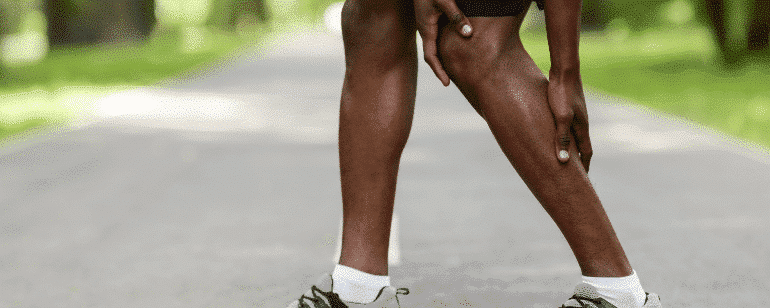Calf cramps occur mainly at night and can significantly disturb sleep. They occur in the form of a sudden, uncontrollable cramp in the calf. The twitching in the muscles can be avoided as long as the cause is determined. In most cases, there is a harmless explanation for calf cramps that can be avoided with simple remedies.
Calf cramps: cause and treatment
After exercise, muscles may be stressed and fatigued. Overuse of muscles can lead to cramps, which can be avoided with stretching routines.

To do this, it is recommended to stretch the calf by pulling the foot up and stretching the muscle. Also, massage with hands can help release the tension in the muscle. To promote blood circulation, heat applications, for example with the help of a hot water bottle, can also not hurt.
In addition, the increase in water helps prevent muscle cramps. Insufficient fluid intake leads to dehydration of the body, which reports with uncontrollable twitching at rest, such as during sleep.

Calf cramps can be attributed to an electrolyte imbalance. A deficiency of magnesium, potassium, sodium or calcium can impair the function of muscles and lead to cramps accordingly. Magnesium and potassium, for example, are found in foods such as spinach, nuts or bananas, which can be used to compensate for deficiencies.

The missing electrolytes can also be compensated for with the help of tablets, the dosage of which should, however, be discussed with a doctor.
Calf cramps as a warning signal
Overall, calf cramps can be seen as a signal of a deficiency that should be addressed quickly. Close observation can determine what might be the trigger for such cramps. Whether it’s a low fluid gain, an electrolyte imbalance, or muscle overload, simple remedies are a good way to eliminate symptoms. However, if calf cramps persist despite measures and other symptoms and dysfunctions are added, a doctor should be consulted to determine possible diseases and initiate appropriate treatment.
